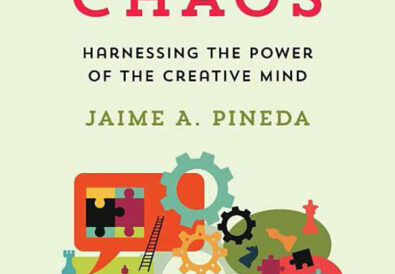The words you use have the power to either heal or harm you. They can make you feel better about yourself and help you own your place in the world—or they can act like restrictive chains around you and erode your soul and spirit.
Let me share private extracts from one of my journals (dated January 2003). Adjusting and reframing the words I used concerning myself and my perceived abilities freed me to move forwards and craft much change in my life. As you read the following journal extracts, I encourage you to pause from time to time and reflect on how the words I use may or may not relate to you.
Silencing My Inner Critic
My Thoughts: not good enough, fear of failure, fear of judgment, fear of what others think or say, not worthy of love, not liked, not enough energy, disabled, a lifetime of ill health and pain . . .
• I am not good enough. I am enough.
• Fear of failure. I can do this.
• Fear of others’ judgment. I am the master of my mind, and it is what I think and believe that counts.
• Fear of what others say. I believe and trust in my voice. It is my opinion of me that is important.
• People do not like me. I like and love me.
• I am not worthy of a great life. I deserve to be happy and have success. I deserve to live my best life.
• Life is hard for me. Life loves me, is good to me, and flows naturally through me.
• I am disabled and limited in my ability. When I expand what I think, I expand what I can do. When I expand what I do, I expand my world.
• I have ongoing health issues. My body and spirit have the power to heal.
My Feelings: fear, nerves, shyness, guilt, regret, lack of confidence, lack of selfbelief, low self-esteem, self-conscious, feelings of weakness and vulnerability, feelings of not being good enough or worthy of love…
• I am a disappointment. My family is proud of me.
• I lack confidence. I have all the power, strength, and resources in me.
• I feel physically weak and vulnerable. I am mentally strong and powerful.
• I feel forever exhausted. I feel energized, nourished, and enriched.
• I do not like myself. I am a beautiful person. I feel love for me.
• I feel anxious about my future. I feel calm with a deep sense of knowing that all will be okay.
Adjusting and Reframing My Words and Thoughts
Time to Flip My ‘But’
• I want to go swimming, but I am very I am very tired, but I want to go swimming.
tired.
• I would love to meet with friends, but My pain levels are high, but I would love to meet with friends.
my pain levels are high.
• I want to go to the party, but I don’t I do not know how I will feel on the day, but I want to go to the party.
know how I will feel on the day.
Time To Say ‘Up Until Now’
• I have been too tired. Up until now, I have been too tired.
• I feel uptight and anxious. Up until now, I have been feeling uptight and anxious.
• I have had no energy. Up until now, I have had no energy.
• I have not looked after myself very well. Up until now, I have not looked after myself very well.
• I am not good at taking rest when I need Up until now, I have not been good at taking rest when I need it.
it.
I feel raw and vulnerable sharing these journal extracts with you. However, it highlights how even the little things (e.g., changing the order of what goes before and after the word “but”) can be hugely impactful by sending a completely different message to your brain. Your mind sees the word “but” as negating what goes before it and therefore puts more focus and attention on the second part of the sentence. Try it for yourself and feel the difference it makes.
Similarly, the small difference of inserting the three short words “up until now” before a statement opens the doorway so that whatever you may have seen as being your factual reality can now perhaps be replaced by a different experience instead.
Be Cautious
When adjusting or reframing the thoughts you hold about yourself, be careful of the language you use, for your mind does not pay attention to whether you do not want something or want something. You may think the two sentences below mean the same thing, but to the brain, they relay quite different messages. Try saying the following two sentences out loud, and you will feel and see what I mean.
• I do not want to feel stressed. (The brain homes in on the word stressed so it can make sense of what you are referring to—and it only brings you thoughts and feelings of stress.)
• I want to feel relaxed. (To understand the context of the sentence, the brain homes in on the word relaxed and brings you thoughts and feelings of relaxation.)
Notice how your brain picks the focus word of your sentence to make sense of what you mean.
Keeping Things Simple: Rather than thinking or stating what you do not want to have, be, feel, or achieve, flip your attention to what you do want instead. As you put yourself into a more positive state of mind and start to feel better about yourself and your life, your brain will automatically start looking for ways to help you achieve what you want.
From Unhackable Soul: Rise Up, Feel Alive, and Live Well with Pain and Illness by Maureen Sharphouse © 2022, and reprinted by permission of Unhackable Press.
 Maureen Sharphouse wrote the international bestselling book Unhackable Soul: Rise Up, Feel Alive, and Live Well with Pain and Illness and her 30-Day online “Unhackable Soul” course, a 30-day elixir to reignite the light within you, after not having a pain-free day in 35 years. A neurolinguistic programming expert, Sharphouse evolved a thriving coaching practice into a passionate mission to empower people living with pain and illness across the globe to not only be alive but feel alive. If you know someone facing chronic pain, connect them with free resources at MaureenSharphouse.com where they can find a community that cares.
Maureen Sharphouse wrote the international bestselling book Unhackable Soul: Rise Up, Feel Alive, and Live Well with Pain and Illness and her 30-Day online “Unhackable Soul” course, a 30-day elixir to reignite the light within you, after not having a pain-free day in 35 years. A neurolinguistic programming expert, Sharphouse evolved a thriving coaching practice into a passionate mission to empower people living with pain and illness across the globe to not only be alive but feel alive. If you know someone facing chronic pain, connect them with free resources at MaureenSharphouse.com where they can find a community that cares.




















